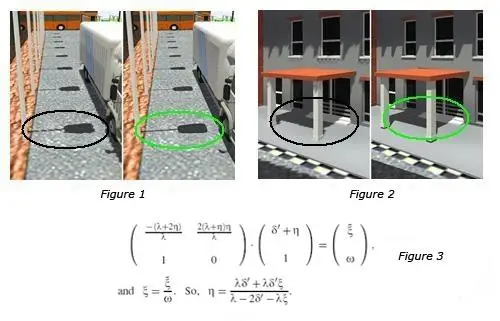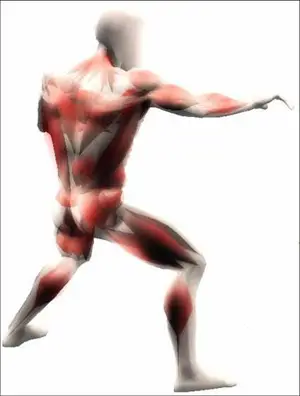Computer Science & Mathematics/Applied Maths (Cohorts before 2021)
Jointly offered by: School of Computing & Faculty of Science
Bachelor of Computing (Computer Science) (Honours) and Bachelor of Science (Mathematics/Applied Mathematics) (Honours/non-Honours) 1 – Applicable for Cohorts 2020 and earlier
From AY2021-22, with the launch of the College of Humanities and Social Sciences, the double degree programmes in Applied Maths and Computer Science is no longer offered. Students from Cohort 2021 and beyond will pursue the double degree programmes in Computer Science and Mathematics. The programme structure is given here. For details on the requirements for CS degree in respective cohorts, please refer to this site.
Notes: NUS will adopt three new academic terminologies from 1 August 2023 – “Module” will be renamed “Course”, “Modular Credit (MC)” will be renamed “Unit”, and “Cumulative Average Point (CAP)” will be renamed “Grade Point Average (GPA)”. The definition of a Module/Course and MC/Unit will remain the same, and there will be no change to the computation of the CAP/GPA.
1. Introduction

2. Specialisations
Students in the Double Degree Programmes may choose to pursue one of the following two specialisations:
Algorithms and Computation: Graduates with this specialisation will be at the forefront of solving myriad complex computational problems, in both industry and research. They will apply their advanced learning in the theory of computation, a fundamental area that influences every field of computing, to tackle industry needs in complex scheduling, network optimisation, physical simulation, software reliability, etc. Their advanced knowledge in algorithmic design will also enable them to adapt to a wide variety of computing fields. The specialisation covers areas such as: computational complexity, cryptography, algorithmic graph theory and combinatorics, randomness in computing, parallel and distributed computation, machine learning, applications of logic, algorithmic algebra, coding theory, etc.
Multimedia Modelling: Recent advances in computing, networking and multimedia technologies have facilitated the construction of large and complex multimedia systems. To fully comprehend the complexity of such undertakings, proper modelling of multimedia information and systems must be carried out. The objective of this specialisation is to produce graduates with in-depth mathematical knowledge and advanced computing skills to contribute to the construction of multimedia models and modelling tools. Graduates with this specialisation will form the vanguard in the advancement of interactive digital media (IDM) technology. They will apply their mathematical logic and learning in networking and multimedia technologies to develop more realistic animation, better special effects, and generate a more immersive experience in virtual reality that engages the various human senses more fully. Graduates with this specialisation will find their niche in high-end technology companies in the IDM sector, as well as in the field of research. The specialisation covers areas such as: Numerical PDE, 3D Differential Geometry, Computational Geometry, Game Development, etc.

Each specialisation comprises advanced courses from both the Department of Mathematics and the Department of Computer Science.2
Note:
1 Students in the other Bachelor of Computing programmes, except B.Comp. (Computer Science), may wish to design special Double-degree programme with B.Sc. (Mathematics) or B.Sc. (Applied Mathematics) under the guidance of the Undergraduate Offices of both School of Computing and Faculty of Science.
2 The list of courses will be updated regularly by the committee overseeing the double-degree programmes.
Requirement for completion of specialisation:
Students must read at least 32 units (for the double honours programme) or 28 units (for single honours programme) from courses offered in one of the two specialisation lists, with the following requirements:
- Students must read at least 12 units of courses offered by each department.
- Students in the double honours programme must undertake an Integrated Honours Project.
Courses offered in each specialisation are listed here.
3. Admission Requirements
The double-honours degree programme follows a dual entry system:
(i) Direct admissions through university admissions exercise (http://www.nus.edu.sg/oam)
Applicants must satisfy one of the following two criteria:
- Grade A in either ‘A’-level Mathematics or ‘A’-level Further Mathematics, and a good grade at ‘A’-level in either Computing or Physics or Chemistry or Biology or Physical Science.
- Demonstrated special talents in Mathematics and/or Computing (e.g., Mathematics and/or Informatics Olympiad awards, etc.)
If the candidate meets criteria in first bullet, no interview will be required.
(ii) Admissions at the completion of first–year studies in BComp (Hons) or BSc (Hons).
Candidates will be assessed on the merits of their first-year results. Interested students should contact the programme administrator on receipt of their results.
4. Integrated Honours Project
Students pursuing one of the listed specialisations in the double honours degree programme must undertake an integrated honours project in Mathematics and Computer Science. The project will provide the students with the opportunity to explore and integrate their knowledge in the specialised field. A student pursuing a double honours degree programme without specialisation can choose to undertake:
i. one integrated honours year project or
ii. one Computing honours year project and one Mathematics honours year project or
iii. Industrial Experience Requirement (12 units) and one Mathematics honours year project or
to fulfil the graduation requirements of the double degree programme.
The integrated honours project will be jointly supervised by faculty members from the Department of Computer Science and the Department of Mathematics, and must contain elements of both computer science and mathematics.
5. Exiting the Programme
For students admitted to NUS before AY2011/12: Students in the Double Degree Programme in Computer Science and Mathematics/Applied Mathematics must maintain a GPA of 4.00 or above. Students who do not maintain a GPA of 4.00 in courses contributing to the first degree for two consecutive semesters will be required to withdraw from the DDP by withdrawing from the second degree programme. Upon withdrawal, all courses which the students have taken to fulfil the requirements of the second degree will be reflected in the transcript and included in the computation of the GPA for the single degree in their original home Faculty.
For students admitted to NUS with effect from AY2011/12 and before AY2014/15: A student who does not maintain a GPA of 4.00 in courses contributing to the original degree, and a GPA of 3.50 for the second degree for any two consecutive semesters will be required to withdraw from the DDP by withdrawing from the second degree programme. The units completed in the double degree programme will be counted towards the fulfilment of the degree requirements of their single degree, subject to the normal limits of the Faculty curriculum.
For students admitted to NUS with effect from AY2014-15 onwards: A student who does not maintain a GPA of 3.75 in courses contributing to the original degree, and a GPA of 3.25 for the second degree for any two consecutive semesters will be required to withdraw from the DDP by withdrawing from the second degree programme. The units completed in the double degree programme will be counted towards the fulfilment of the degree requirements of their single degree, subject to the normal limits of the Faculty curriculum.
6. Fees
The tuition fees payable for the duration of this programme will follow existing guidelines set by the University.
7. Enquiries
If your home faculty is School of Computing, please direct all queries to bcomp@comp.nus.edu.sg with the subject clearly marked: “Double Degree in Computer Science and Applied Mathematics/Mathematics Programme”. Otherwise, please send to: AskMathUG@nus.edu.sg if you are in Science Faculty.
